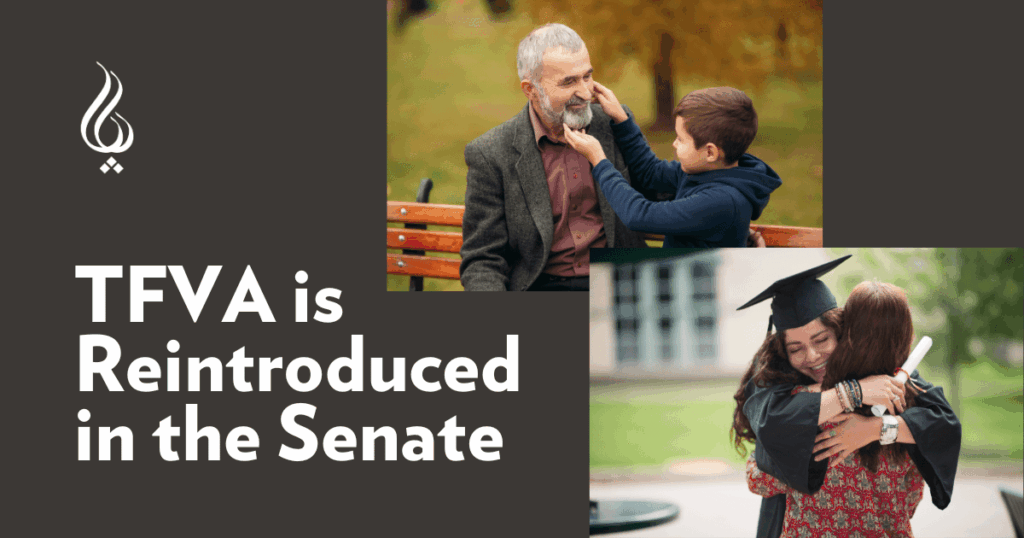FOR IMMEDIATE RELEASE:
Contact: Shannon Kuehn
Position: Director of Communications, PAAIA
Email: [email protected]
Phone: (202) 828-8370
Washington, D.C. — Today, the Public Affairs Alliance of Iranian Americans (PAAIA) welcomes the reintroduction of the Temporary Family Visitation Act (TFVA) in the Senate. Led by Senators Rand Paul (R-KY) and Richard Blumenthal (D-CT), this bipartisan, bicameral legislation will establish a new B-3 visa category designed specifically to allow family members of U.S. citizens and permanent residents to temporarily visit the United States. TFVA was introduced in the House by Representatives Scott Peters (D-CA), Stephanie Bice (R-OK), Jim Himes (D-CT), and Maria Salazar (R-FL) earlier this year.
“For years, PAAIA has been a leading force behind efforts to remedy our country’s flawed visa system. Today’s reintroduction of the TFVA by Senators Paul and Blumenthal is an important step toward addressing the high visa denial rates faced by so many in our community,” said PAAIA Executive Director Neda Bolourchi. “Establishing a new visa category specifically for family members to visit their relatives in the U.S. will benefit all Americans with loved ones abroad as well as boost our local economies through travel and tourism.”
Originally introduced in the 117th Congress, the TFVA has been endorsed by 22 organizations. The bill embodies the principle of family reunion, making it extremely relevant to the United States’ diverse communities many of which have family members living abroad. The legislation also appeals to the tourism industry as it has the potential to bring in billions of dollars and create millions of jobs. In fact, the U.S. Travel Association estimates that each overseas traveler spends approximately $4,200 when they visit the U.S. In 2018, international travel spending directly supported 1.2 million U.S. jobs.
Currently, the Immigration and Nationality Act (INA) stipulates that family members wishing to visit their relatives in the U.S. must do so through B-2 visitor visas. Unfortunately, B-2 visitor visa applicants face unnecessarily high denial rates due to the presumption that applicants with family members in the U.S. intend to immigrate. As a result, many would-be visitors end up applying for immigrant visas as the only path to visit their loved ones here in the United States.
To solve this problem, the TFVA allows for U.S. citizens and permanent residents to petition for their relatives to visit them in the United States. The bill requires petitioners to sign a letter of financial support and mandates that applicants make specific and realistic plans for their visit as well as purchase travel medical insurance. To address security concerns about visa overstays, the TFVA prevents visitors from changing their visa status, limits the duration of the stay to 90 days, and prohibits petitioners from using the TFVA if they had a relative that previously overstayed their visa.
“We are proud of the role that PAAIA has played in the introduction of the TFVA. This impactful legislation will positively impact American families and the U.S. economy,” said Bolourchi. “PAAIA remains steadfast in our commitment to advancing the interests of Iranian Americans and advocating for the reunification of families through secure and enhanced visa polices.”
Learn more about the TFVA at PassTFVA.com
About PAAIA:
PAAIA is a nonprofit, nonpartisan, nonreligious organization that serves the interests of Iranian Americans and represents the community before U.S. policymakers and the American public at large.
